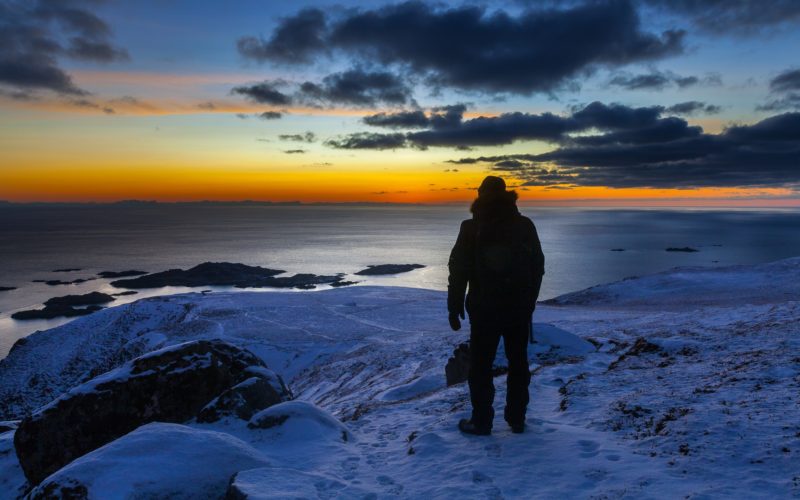Are the cartoons of polar bears clinging onto tiny ice floes becoming so commonplace that they’re losing their impact? Beyond the polar bear, what will the loss of arctic ice actually mean?
For many years, climate scientist Paul Beckwith at the University of Ottawa, has been warning that we are losing arctic sea ice at unsustainable rates. He says that arctic temperatures are increasing at around four times the global average rate (not the two times often quoted). He predicts abrupt changes as we begin to lose most arctic sea ice in summer.
The reason is simple. In summer the North Pole is under constant sunlight. The white snow and ice reflect 50% to 70% of incoming sunlight, keeping temperatures low. However, when dark-blue water replaces the ice, it instead absorbs around 90% of incoming sunlight, causing arctic temperatures to rise even faster. So what?
Well, it turns out that the stability of the atmospheric jet streams that circle the upper latitudes of the northern hemisphere depend on maintaining a decent temperature gradient between the equator and the North Pole. When the arctic warms, the temperature gradient reduces and so does the stability of the jet stream. As the jet stream becomes weaker, its oscillations become more ragged, and can get stuck. You may have heard some commentators refer to these slowed-down jet streams as ‘atmospheric rivers’.
This means we will get more extremes of temperature and weather in unexpected places, and more frequently. Think of the record heat and devastating fires in British Columbia in July 2021 followed by record damaging rainfall and floods only four months later, or the Texas freeze in February 2021. And that’s North America alone. Paul refers to these effects as “weather wilding, weather weirding and weather whiplashing in the climate casino”.
The other phenomena that the loss of the arctic ice will impact are ocean currents themselves. The warming arctic waters can disrupt major ocean circulation patterns. One of the most important is the North Atlantic Current which moderates temperatures in Britain. These changes are harder to measure, visualize and predict. But disruptions to ocean currents would have abrupt and dramatic effects on weather and climate.
These implications of the loss of arctic ice are explained in this YouTube video by Paul Beckwith, in his own unique style.
To gain a better appreciation of what Paul is talking about when he talks about the rate of arctic ice loss and seasonal ice cover change, watch this short NASA- produced animation of measured arctic sea ice extent and age since 1985.
So the bottom line is: Yes, losing arctic sea ice is a very big deal! Its not only the polar bears that are going to suffer.
This article was inspired by Paul Beckwith’s work. Paul has been outspoken about the threat of abrupt climate change. He produces regular videos on the latest climate science on his YouTube channel, often in tow with his cat Shackleton the Explorer! I also recommend you check out his website where you’ll find lots of stuff about climate science and even some ingenious hacks for improving energy efficiency in your home, thoughts on chess, and some personal stuff.
Scientists like Paul Beckwith help communicate the science of climate change in ways that are accessible for most people. Thanks Paul for taking the effort to share the science with us.
The writer is the co-author of Court of the Grandchildren, a novel set in 2050s America.
Image Credit: Photo-View Pixabay
